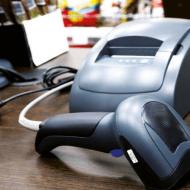
The current rules for the exchange of currency by individuals in Russian banks: permissible transactions and control. Rules for the purchase of currency by an individual Implications for individuals
The new currency exchange provisions came into force very recently. Until recently, in order to sell or buy currency from 15,000 rubles, credit firms had to carry out identification. Only one document was required - a passport. An employee of a financial institution wrote down the name of the client. New currency exchange rules in Russia appeared at the end of last year in December 2015.
Tightening of currency exchange rules in Russia
Not so long ago, new rules came into force regarding foreign exchange transactions in exchange offices. The Central Bank has tightened the currency exchange rules for those people who want to make a financial transaction in the amount of more than 15,000 rubles.
In the past, less complex procedures were used to establish identity, now new law obliges financial institutions to carry out full identification of citizens.
The Central Bank reassured the Russians that the new rules would not create additional difficulties. If the amount does not exceed the established threshold, then the currency exchange according to the rules of 2017 will not differ from the previous ones. In the event that the amount exceeds the threshold set by the Central Bank, you will also need a passport, and in addition, you will need to fill out a form. The tightening of currency exchange rules will lead to the fact that it will take a little longer to complete foreign exchange transactions.
The questionnaire will be completed by an employee of a bank or exchange office, but the client will need to provide additional information, such as residential address or TIN number. The answers will be entered in the questionnaire, which the client himself can fill out. If filled out by an employee of the institution, all items of the questionnaire are filled out based on the testimony of the client.
Currency exchange in 2017
New currency exchange rules came into effect on December 28 last year. Quite a bit of time has passed, and many people still do not know how this innovation will affect their foreign exchange transactions.
The point of the new rules is to make the currency conversion scheme as transparent as possible. In developed countries, this practice has already become a habit.
It is rather difficult to export money in cash from developed countries, since large amounts are allowed to be exported on a card or in another non-cash way. While currency exchange regulations are being tightened, major institutions have said that citizens will not be restricted in their right to make various foreign exchange transactions. Even if an employee of the exchange office asks the client for a TIN number, then its absence should not become an obstacle to converting. Money can also be exchanged with the help of a foreign passport, however, in this case, a bank employee may require you to provide the registration address. If a general civil document is used, then the registration address after the first exchange will be entered into the database automatically. Currency exchange rules in Russia are more loyal than in developed countries. You should not be afraid of innovations, since this measure is not aimed at the detriment of citizens, but for the benefit.
Questionnaire for currency exchange
Most people are already aware that new currency exchange rules have come into effect. From December 27, 2015, to exchange currency for an amount exceeding 15 thousand rubles, an identity card will be required, and in addition, you will need to fill out a special questionnaire. The dossier records all the data that the credit institution during identification of a citizen.

With regard to the recently established currency exchange rules, the Central Bank has set a list for the questionnaire, including 17 items. According to these points, the bank can formulate its own questions. Determining the degree of riskiness of the client is completely the responsibility of bank employees.

Currency exchange rules from December 28 are aimed at combating financial terrorism. Since they appeared quite recently, there are a huge number of questions from both ordinary citizens and employees of credit organizations. There is still no clear and specific definition of which citizen can be considered suspicious. Employees of a credit firm must determine for themselves whether a particular client is suspicious. An employee of a credit institution may be wary large sum, the inappropriate behavior of the client may also seem suspicious. New currency exchange rules from the end of 2015 are needed to reinsure financial institutions. The Central Bank sent out a common questionnaire template to all financial institutions. Banks have the right to modify the questionnaire at their own discretion.
What could be the consequences of tightening the rules of foreign exchange from the Central Bank
The new currency exchange rules that came into force on December 28 were perceived by citizens ambiguously. Some people understand the importance of such innovations, but most people worry about whether the innovations will be reflected in a negative way. It is necessary to understand the main thing - the Central Bank has tightened the rules of currency exchange so that banks can insure against fraudulent schemes and machinations. The public at the very end of last year was somewhat shocked by the introduction of new currency exchange rules. On the forums, you can find many questions regarding how the innovation will affect the ongoing currency transactions. Some experts give positive forecasts as to whether something will change in the banking sector after the entry into force of the law. Some experts believe that some credit organizations may declare unprofitability and reduce the exchange network. Many expect that the commission charged for performing currency conversions will increase.

A positive moment for banks is the fact that information on foreign exchange transactions of each client will be stored for 5 years in a dossier. If a credit institution needs to obtain more information about the client, then this can be done without any problems. So far, the worst thing that awaits citizens is the loss of some time when converting to fill out a questionnaire according to the new rules.
In Russia, from December 27, 2015, new rules have been introduced regarding the cash exchange of foreign currency. The innovation provides for the identification of customers by the bank. The previous procedure for money exchange in a bank, which takes place with a passport, has been expanded and tightened. When making an exchange currency transaction equivalent to 15,000 rubles, bank employees ask customers to complete a survey and answer additional questions (specify TIN, place of work, contact phone number, etc.).
When making a financial currency transaction (purchase and sale) in the amount of ≤ 15,000 rubles, there is no need to identify the client's identity. Operations with a turnover ≥ 15,000 rubles. require the presence of a client's passport and his questionnaire (filled out by a bank employee). The data obtained during the survey process is not subject to disclosure and will be used within the credit institution (the data storage period is established by applicable law).
The innovation of the Central Bank did not immediately take root and caused conflicting reviews.
Reason for the new rules
In the official position of the Central Bank of Russia (499-P), the main positions of customer identification are fixed. A forced measure to strengthen control, tracking, combating financial terrorism and money laundering. The task of the bank is a thorough check of persons making money exchange transactions and other of its clients. This provision applies to the work of currency exchange offices. The principle of buying or selling a foreign monetary unit through Internet banking or cashless payments remained the same.
How to make a currency exchange
The new rules of the Central Bank apply to money transactions exceeding 15,000 rubles. If earlier it was enough to present a passport to make a currency exchange, now the bank offers to undergo a special questionnaire. In a special questionnaire, the full name, full date of birth, place, citizenship, actual address of residence must be indicated. Additionally, bank employees can clarify contact information, find out the financial situation, source of income and business reputation of the client.
If this is not the first contact with the bank. For example, they applied for a loan at Sberbank, its employees have the necessary information and it is enough for the client to present a passport. Otherwise, you will have to go through the identification process completely.
The Central Bank was reassured that customers would not experience inconvenience with the innovation. Employees of a banking organization will independently fill out a questionnaire based on data from various information bases. Therefore, in fact, when buying and selling in foreign currency, it is enough for the client to present a passport.
The collection of additional information is selective.
How will the new rules affect currency exchange?
The Central Bank's statement that customers will not feel the changes causes skepticism among a number of credit institutions. Currency exchange will take longer, queues will appear, which, in turn, will naturally annoy customers who value their time.
Of the positive aspects, they note an increase in the transparency of financial transactions, the simplified use of controlled cashless payments.
What do the new rules mean for citizens
The new rules aimed at ongoing currency purchase and sale operations have caused a lot of questions from ordinary citizens. The adoption of the provision on mandatory personal identification of the client (exchange of ≥ 15,000 rubles) raised a wave of distrust and overgrown with a web of unverified information.
- Use of personal data specified during the execution of a currency transaction for the subsequent taxation of the transaction. To date, there is no such clause in the legislation of the Russian Federation. Honest citizens should not worry about their accumulated funds. Additional financial penalties are not provided.
- Many took the innovations as a signal for a sharp change in the exchange rate of foreign currencies and began to sow panic on their own, creating an artificial financial deficit. The exchange rate is set and fixed by the Central Bank of the Russian Federation.
- Information fraud. The data established by the bank in the process of identifying the client is the property of the organization and is closed from access by third parties. The collection of information is carried out in order to ensure the security of the bank and identify possible illegal actions of the client.
Like everything new, the adopted rules scared ordinary citizens more, forcing them to resort to alternative methods of exchange. This reaction sparked a wave of fraud.
Security measures when buying and selling currency in 2018-2019
The unstable economic situation, innovations and an abundance of false information have confused many citizens, and some openly panicked. The desperate desire of the Russians to make a quick currency exchange with the maximum personal benefit has created a fertile ground for the activities of fraudsters.
Illegal activities in the financial sector keep pace with the times. The crude scams of the 1990s have replaced subtle new, "almost legal" scam schemes aimed at deceiving citizens in order to take over their finances.
Common fraud when buying and selling currencies:
- sleight of hand, or the mystery of the black box. A conscientious cashier lays out cash against the wall of the tray, located closer to the client. Every second citizen takes the funds received without counting. Unfortunately, not the entire amount may be in the pack. A pair of three banknotes mysteriously ends up at the far wall of the tray, where naive citizens would never even think of looking. What happens: a dishonest cashier performs a well-honed trick, a throw, in which several bills, hitting the front wall, fly off deep into the tray. There are no illegal actions in this, the amount is given in full. The client is left to blame for his carelessness. Sweet syrup can also be used for similar purposes. Having slightly lubricated the tray with a sticky composition, it is really possible to get a good “increase” in salary;
- write one, remember zero. An indication of the exchange rate on the scoreboard up to tenths does not guarantee that the expected amount will be received. The catch is that enterprising currency exchange employees refer to the lack of a zero for the scoreboard and explain the flaw in the rate by shifting the value to hundredths. For example, the indicated USD rate of 68.3 actually means 68.03. Unreasonable dependence of the exchange rate on the amount being changed is also common. For example, the specified favorable exchange rate Valid for exchanges over $1,000. The rules are not violated, because the client was “informed” by a small, inconspicuous announcement written in small print;
- Fake! Here, dodgy scammers called for help from the legislation of the Russian Federation. The cashier has the right to legally seize all suspicious banknotes. Usually, citizens who change insignificant amounts are subjected to attacks by scammers. A terrible loud accusation - a counterfeiter - knocks them out of the rut of rationality. Law enforcement agencies evoke unkind associations among Russians, therefore, fearing the upcoming red tape, clients part with their savings relatively easily;
- for many Russians, the bank is a guarantor of security. They actually work there. ordinary people with different moral principles. There is a huge amount of illiquid banknotes, the sale of which causes difficulty even for official organizations. They can be issued to an unsuspecting citizen. The adopted new rules for the mandatory identification of the client's identity provide a certain security when making a transaction. Dishonest cashiers in this case do not require documents.
A diverse range of fraud schemes is regularly updated. More and more people fall for the tricks of scammers.
The safety of the client is in his hands. The manifestation of vigilance and compliance with accepted norms and rules when performing a money exchange operation. Self-control and law-abiding will give their results. If you have the slightest suspicion or violation of the rules for the sale of currencies, you should immediately contact the management of the credit institution and law enforcement agencies.
For active users of new technologies, the service "modern online banking" is provided, the use of the resource allows you to avoid various unpleasant situations. The simplicity of the operation, complemented by significant time savings, brings the provided service to a leading position.
The Ministry of Finance may refuse pending currency purchases. This issue is being discussed with central bank ohm.
The Ministry of Finance will discuss with the Central Bank the possibility of reducing pending purchases of foreign currency on the market through spending from the National Welfare Fund (NWF). This was reported to journalists by the Deputy Minister of Finance of the Russian Federation Vladimir Kolychev.
“The Central Bank has its own purchases outside the budget rule now, the so-called additional purchases, which were not bought in the fall. We will discuss with the Central Bank the topic of simply compensation through these additional purchases of what should have been purchased Russian currency for funding purposes Russian projects. Thus, only purchases within the budget rule will remain on the market, which will greatly simplify the understanding of market participants. This is not a solution yet, we are discussing this with the Central Bank," TASS quoted Kolychev as saying.
In accordance with budget rule, The Ministry of Finance buys foreign currency on a monthly basis additional income from the sale of oil for more than $40 per barrel, the Ministry of Finance sends this currency to reserves. The Central Bank of the Russian Federation acts as an agent of the Ministry of Finance for procurement on the open market.
In August 2018, the Central Bank temporarily abandoned this practice due to market volatility and a sharp weakening of the ruble due to the threat of US sanctions, the Ministry of Finance began to buy foreign currency directly from the Central Bank without making equivalent transactions on the domestic market.
From January 15, 2019, the Central Bank returned to currency market, and from February 1, he began to purchase foreign currency for the Ministry of Finance, which was postponed last year.
The Deputy Minister of Finance of the Russian Federation noted that the Central Bank, most likely, will reduce purchases of foreign currency by an amount equivalent to the volume of expected spending from the NWF.
"Sizes are similar. Central Bank about 1.4 trillion rubles will remain there. or less for the next two years. And from the NWF, a limit of 1 trillion rubles is expected. for three years. Perhaps, over the next six months, the Central Bank will continue deferred purchases, and when these volumes equalize, mutual accounting will be possible," Kolychev stressed.
The government can start investing from the NWF, which accumulates oil and gas revenues, when its liquid part exceeds 7% of GDP. According to the Ministry of Finance, on November 1, the volume of the NWF exceeded 7.9 trillion rubles, or 7.3% of GDP. The Ministry of Finance predicts that by the end of 2020 the volume of the NWF will reach 8.5% of GDP.
If the decision is made, it is unlikely that it will significantly affect the market. For almost the entire year, the ruble feels stable, and almost no one remembers the purchases of foreign currency by the Ministry of Finance. Obviously, the department has no task to put pressure on the ruble.
In the period from November 8 to December 5, the Ministry of Finance planned to purchase foreign currency for 228.2 billion rubles. The daily volume of purchases during this period was to be 11.4 billion rubles. Taking into account deferred purchases, the daily volume of additional transactions may amount to approximately RUB 2.8 billion, thus total amount purchases increases to 14.2 billion rubles.
Traders concentrate on purely market factors. This year, the ruble is strengthening mainly due to demand from non-residents. Bond yields were quite high, and then the Bank of Russia signaled the resumption of the cycle of rate cuts.
All this led to an increase in demand for Russian securities and, consequently, for the ruble.
It turns out that the complication of the procedure for selling currency was not required to make us buy less of it. At least officially it is. Bank of Russia Regulation No. 499-P, dated 10/15/2015, “On the Identification by Credit Institutions of Clients, Client Representatives, Beneficiaries and Beneficial Owners for the Purpose of Counteracting the Legalization (Laundering) of Proceeds from Crime and the Financing of Terrorism” was adopted in accordance with the requirements federal law dated 07.08.2001 No. 115-FZ, the Central Bank explains.
Thus, the practice is brought into line with the law, and this law is directed against terrorism and crime. The current legislation allows not to identify an individual at all when buying or selling foreign currency in cash for an amount not exceeding 15 thousand rubles (or its equivalent in foreign currency). As stated in the message of the regulator, when buying or selling currency in the amount of up to 15 thousand rubles. client identification is still not required.
If the transaction amount is higher, you need a passport or other identity document. We are used to this. But then strange things start to happen. Now the client will have to leave contact information (phone number, fax number, e-mail), TIN. In addition, the bank may require him to provide information about the client's financial situation, his business reputation, and the source of his money. Or, of course, you may not need to. And that's what is important - and the bank itself fills out the questionnaire. The legislation does not oblige individuals to independently fix their identification data by filling out questionnaires, questionnaires, etc.
The information received during identification is recorded by the credit institution in the questionnaire (dossier), which is drawn up in accordance with the regulation of the Bank of Russia No. 499-P different ways. The Central Bank is confident that the new rules for identifying clients by banks will not create additional difficulties for citizens when exchanging currency.
And yet, despite the reassuring statements of the Central Bank, according to a number of market participants, the new requirements will lead to an increase in the time for currency exchange transactions and increase the operational burden on both credit institutions. This, in turn, can lead to a redistribution of the currency exchange market, in particular, increased competition in the sector, some small banks that are unable to establish the appropriate document flow will refuse to provide currency exchange services. Which, in principle, can lead to an increase in the cost of such transactions.
Small banks really simply may not have the resources to fulfill such instructions, - says Anna Bodrova, senior analyst at Alpari. - If the bank works crystal clear, it will lose the parameters of the exchange income, which, accordingly, will immediately affect the general financial indicators. The redistribution of the currency market is unlikely to take place, because it is already concentrated within the top 10 Russian banks. But against such a background, the commission for conversion may well increase by 2-3%. This will affect the average consumer, but will in no way contribute to the reduction of money laundering processes. For this, more serious reforms are needed, - the financial expert believes.
The new is the well-forgotten old, independent analyst Dmitry Adamidov comments on the initiative of the Central Bank. Until 2003, when buying foreign currency, Russians had to draw up a certificate, which was issued upon presentation of a passport. Now this order is returning, but they may also require a TIN. At the same time, according to Adamidov, just like last time, the effectiveness of such events is very doubtful: if money laundering occurs through exchange offices, then it is not by their clients “from the street”. But the banks themselves Required documents will issue. Undoubtedly, the document flow will increase, and this, apparently, will be the only real consequence of innovations.
Nevertheless, the tightening of currency exchange rules by the Central Bank appropriately follows in the general vein of strengthening control over the circulation of cash Money, notes Stanislav Skakun, head of the Center for Macroeconomic Research at Intercomp. Public opinion is not yet ready for radical restrictions on cash circulation. Most likely, the regulator will move in the direction of tightening, but gradually - assessing the consequences of each new innovation.
As for the convenience of exchange operations for citizens, then, according to the expert, there is no need to worry too much: banks will comprehend the new requirements of the regulator and try to minimize the inconvenience for customers, and the closure of a number of exchange offices that were not properly equipped will only increase security of currency transactions. Well, let's see!
















